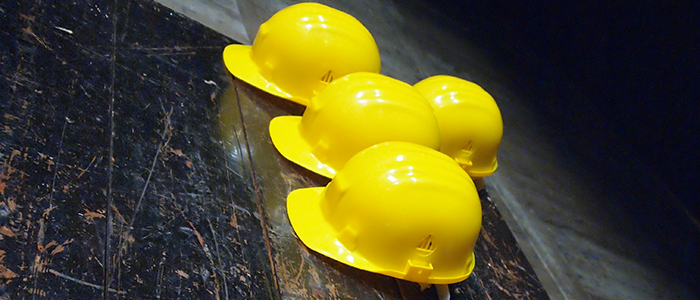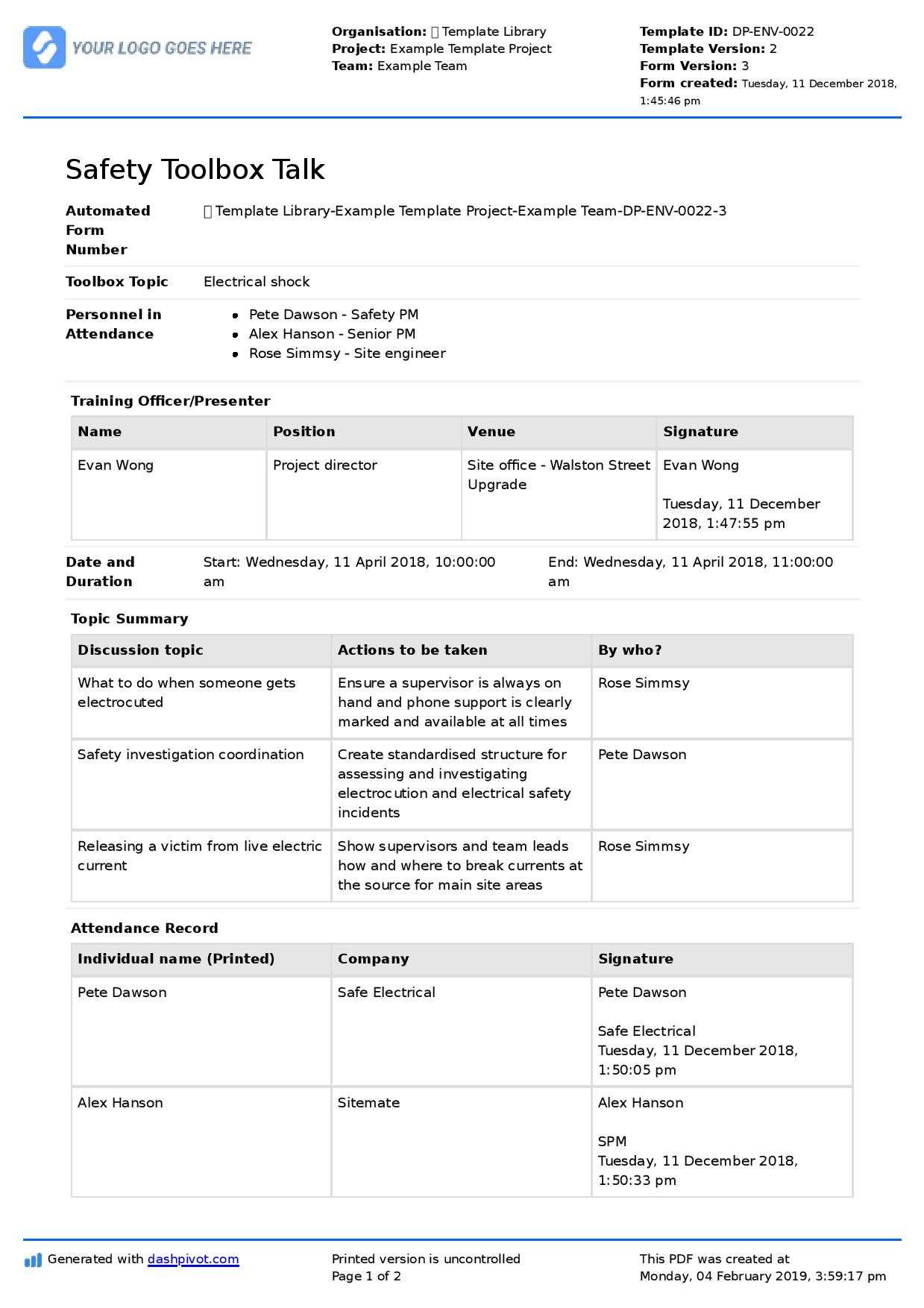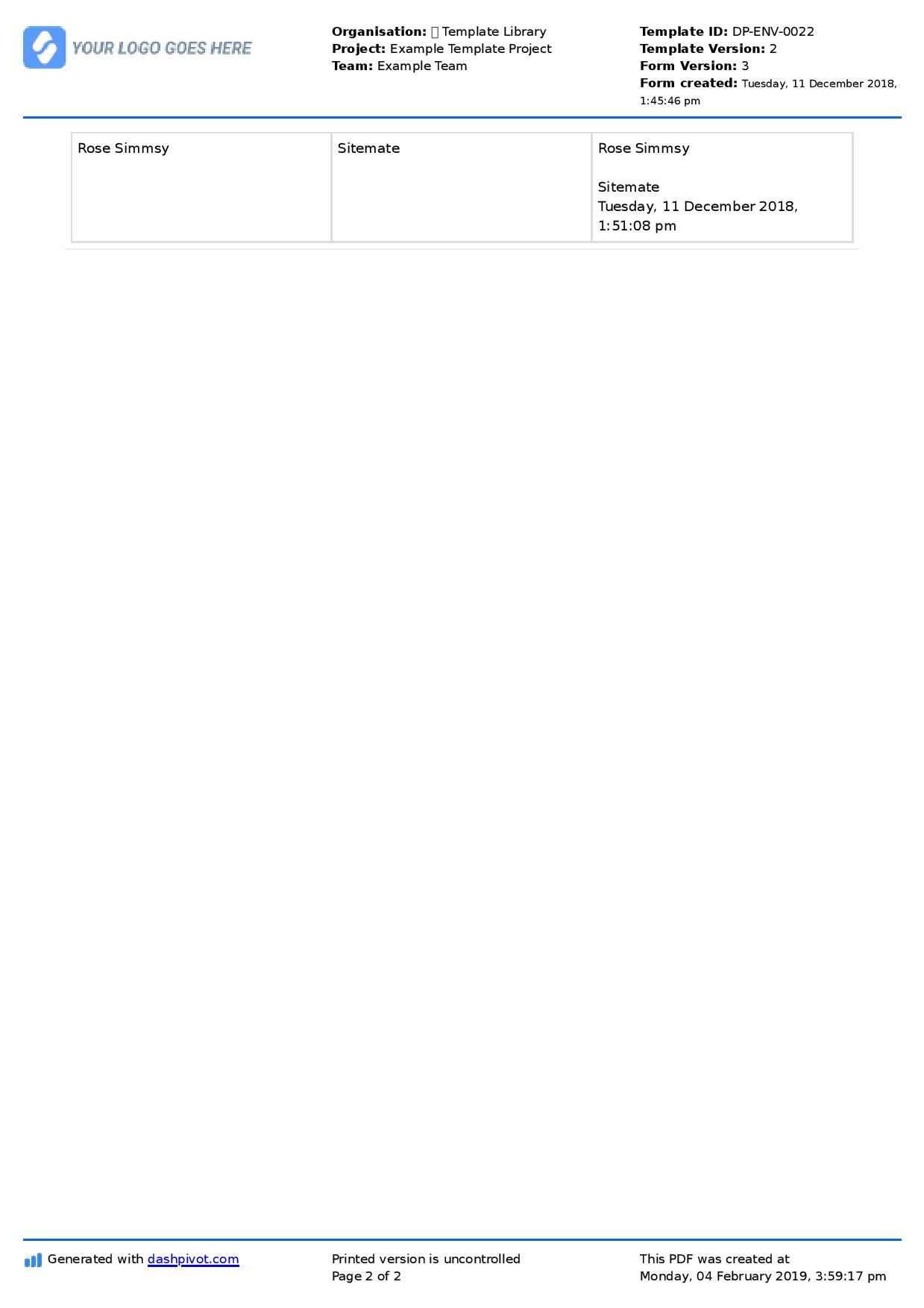Dashpivot article – weekly toolbox talks
Weekly Toolbox Talks
Want to start doing weekly toolbox talks or improve your current toolbox approach? Read on to learn more about weekly toolbox best practice and get some free resources.

When done right, a weekly toolbox talk can be an effective approach to enhance safety and productivity. These weekly sessions, compared to daily toolbox talks, allow teams to discuss safety topics on a deeper level. With modern tech tools around, doing weekly toolbox talks is now easier than ever.
The Differences Between Weekly Toolbox Talks and Daily Toolbox Talks
Weekly toolbox talks offer numerous benefits. Here are the key differences between daily and weekly toolbox talks:
Weekly Toolbox Talks Take More Time to Prepare
These weekly sessions give you ample time to prepare, as you can research the topic, gather examples, and create discussions that will impact your team the most.
Deeper Topic Discussions
With more time on hand, you can tackle the complex safety topics that won’t fit into a quick daily brief. Altogether, management and work can make meaningful discussions that make learning more fun and engaging.
Weekly Toolbox Talks Offer More Team Engagement
Let’s face it—daily meetings can become boring and eventually lead to safety fatigue. Weekly sessions keep your team engaged because they’re less frequent but more meaty in general. You have more time between sessions to implement changes and can eventually see the results firsthand.
Tips for Successful Weekly Toolbox Talks
When you're doing weekly safety meetings, mastering the basics can make a big difference to the talk and prevent it from being a time waster. The following basics are covered to help you create a better and safer workplace through weekly toolbox talks:
Prepare Your weekly Toolbox Talks
Take time to think about your topic before the meeting, and it is essential to prepare the needed materials and equipment beforehand. The best toolbox talks connect real workplace situations to safety principles, so grab examples from your site or recent incidents. You don’t need fancy presentations—just clear knowledge of what you want your team to learn and why it matters to their daily work.
Let Everyone Speak Up
Weekly toolbox talks are conversational in nature, not the long university lecture types. First off, start with more engaging questions that will let them share their experiences and let others provide helpful insights. Some teammates may have encountered the same issues themselves, so creating an open environment makes the workplace more comfortable and engaging.
Record Everything
Remember to document your talks in a way that’s useful and accessible. As always, write down who attended, what you covered, and any important points or concerns during the discussion. Modern digital tools make this easy—you can track attendance, store meeting notes, and pull up past topics when needed.
Always Keep Weekly Toolbox Talks Better
Weekly toolbox talks are constantly changing, and it is important to know whether it is working or not. If people seem disengaged or not applying what you’re discussing, try changing the time, format, or presentation style. The goal isn’t perfection—it’s creating safety discussions that actually stick and make a difference on the job.
Weekly Toolbox Talks Topics to Consider
As opposed to daily safety briefings, weekly toolbox talks give an opportunity to cover topics more in-depth. With more topics to prepare and discuss, like big safety issues, it's good to always consider some useful topics. Here are some toolbox talk ideas to consider:
General Safety
Safety is the common denominator among all industries, and weekly toolbox talks must cover this. Basic safety topics like fire safety and emergency response planning are topics to talk about for the workers to know what to do during emergencies. For industries handling a lot of tools and equipment, topics like PPE usage, basic first aid, CPR, ladder safety, and hand and power tool safety can be talked about.
Industry-Specific Topics
Every industry faces unique issues and problems that require attention, which is why weekly toolbox talks are beneficial. Construction and manufacturing teams should cover confined space entry procedures, while chemical industry workers need regular updates on handling hazardous materials. These topics must be tailored to your industry’s risks and requirements.
Weather and Environmental Topics
The weather and seasons are constantly changing, and the different hazards associated must be addressed throughout the year. In hot summer months, topics like heat stress and hydration can be useful, while slipping and falling on ice must be covered in winter months. For industries exposed to wild animals, talks on the local wildlife can also be discussed.
Human Resources in Safety
The most important asset of any industry is the people, and it is important to address topics like stress and mental health that can impact overall performance. Things like fatigue and ergonomics are good topics to start with that show your people are talked about. Don’t be afraid to discuss substance abuse and how it can impact workplace safety—these conversations could save lives.
Special Safety Requirements
There are safety topics that need special attention due to their very technical nature and inherent high risks. For professionals working with sensitive data in the IT industry, topics like cybersecurity awareness, phishing, and data security can come in handy. For electrical works, lockout/tagout procedures are good topics to consider, while hearing, eye protection, and water safety are great topics for teams working near water.
Workplace Safety Firsthand Experience
While we strive for minimal safety incidents and near misses, these cannot be predicted when they eventually happen. In the event of actual accidents, they can be used as learning opportunities and topics to be discussed in weekly toolbox talks. It is important to share these updates and corrective actions you've implemented and how they are working for your team. Experience is a valuable teacher, as it resonates more than the written rules.
How to Choose the Right Weekly Toolbox Talk Topics
There are many topics to choose from, and keeping one or a few of them is the next step. Here are some tips to help you choose your weekly topics based on your needs:
Discuss Current and Relevant Issues
Pick topics that are relevant and applicable to your current situation. If you’re starting a new project phase or using new equipment, that’s your topic for next week, and as always, keep it relevant to what your team is doing.
Discuss a Variety of Topics in Your Weekly Toolbox Talks
Explore a variety of toolbox talk topics across multiple teams and departments involved. One week might be about physical safety, like proper lifting techniques, and some topics to consider are health and stress management. A broader approach to safety helps create a more holistic safety culture in general.
Provide Feedback and Follow-Up
Use what you learn from each session to plan for the next weekly toolbox talk, and if a topic generates a lot of questions, consider a follow-up session to dig deeper into those questions.
Do Weekly Talks Digitally: Tech Solutions to Consider
Conducting weekly toolbox talks manually can be tough, which is where modern tech solutions come in. A digital toolbox talk software simplifies everything from planning to documentation. You can do the following tasks and processes with just a few clicks:
Schedule and track sessions easily
Manually scheduling your weekly toolbox talks can be hard, as they need to be regular. There are tech solutions out there that can be set to recur and set reminders so no one misses the weekly toolbox meetings.
Store all your safety documents in one place
It can be frustrating to lose important documents, particularly for compliance purposes. Having them all in one place is key, as you can find them with a few clicks.
Take attendance with quick QR code scans
Quick response (QR) codes are useful for many things, and one of them is attendance. Using your mobile phone’s camera and an app, you can say, “I attended the weekly toolbox talk” which gets recorded in real time.
Share with your team in an instant
You can share presentation materials or documents with tech solutions like Dashpivot, a game changer in the safety industry. The app lets you share documentation and get approval signatures with its workflow feature.
Get compliance reports in seconds
Manually making compliance reports is not a walk in the park; it’s time-consuming with countless file cabinets and binders as references. Dashpivot makes it easy to generate long reports by allowing you to retrieve documents from months or years ago with just a few searches.
To conduct better weekly toolbox talks, here is a digital Safety Toolbox Talk form for your team to use:
Organise and manage weekly toolbox talks with this form template
Be Smart: Do Weekly Toolbox Talks with Tech Solutions
With longer weekly toolbox talks, tech solutions can save you time and effort. A toolbox talk app can help to plan, record, conduct, and sign off on weekly toolbox talks. Modern platforms like Dashpivot give you access to pre-made safety topics, customise templates for your industry, track completion rates, store and share safety resources, and generate reports for compliance.
By combining weekly toolbox talks with digital tools, you have a safety programme that’s thorough and efficient. As a plus, your team is informed and engaged, and you have maintained records of all safety communications

Near Miss Reporting template
Keep your site safer by making your near miss reporting procedure safe and streamlined.

Permit to Work template
Digitise and automate the permit approval process for any safety permit to work with this flexible template.

Job Hazard Analysis template
Easily complete a JHA on any device, and then keep all of your job hazard analyses neatly organised and searchable.

